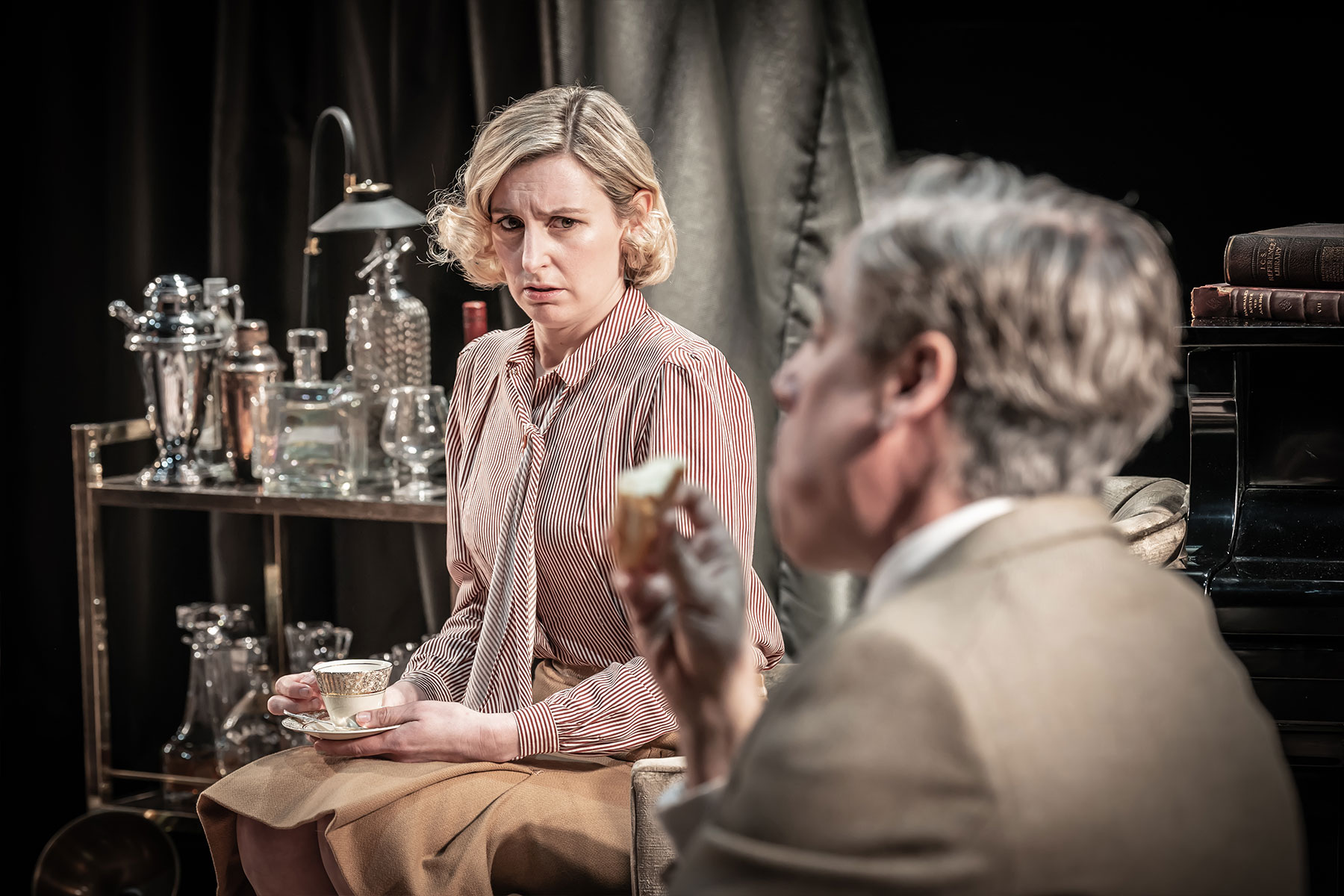Private Lives starring Stephen Mangan at Donmar Warehouse – review

There is a danger of dismissing Noël Coward as a man of bon mots and sophisticated dressing gowns. But beneath the silken sleeve lies a fist of powerful emotion.
Michael Longhurst’s production of Private Lives proves this with crystalline understanding of the play’s surface frivolity and the profound undercurrents of love and loathing lying just beneath its surface. It is drama of such knife-edge ferocity that it’s impossible to turn away. You want to cry, even as you are laughing.
Written in 1930 as a vehicle for Coward himself and Gertrude Lawrence, Private Lives famously opens with Amanda and Elyot, formerly married to one another, meeting side by side on a hotel balcony as they honeymoon with their new loves Victor and Sibyl.
As played by Stephen Mangan and Rachel Stirling the moment when they realise that fate has brought them back together, is a perfectly timed comic dumb show: they both listen to a song that brings back their past liaison, then double take as they realise who they are standing next to, before burying their heads in their hands.
The phrase “can’t live with them, can’t live without them” might have been invented for this fiery couple and, one swift cocktail later, their passion is rekindled and they are running off into the night without a care for their newly-wed spouses, played by Laura Carmichael and Sargon Yelda. The next time we see them is in Paris, where they play out their repetitive dance of passion from love through violence to hate once more.

What both Longhurst and the actors bring out with such clarity is the way that the attraction between Amanda and Elyot is part and parcel of a battle for dominance that distorts all human relationships. When pompous Victor refuses Amanda’s pleas to flee to avoid Elyot, he remarks: “If I start giving into you as easily as this our lives will be unbearable.” That sense of people who don’t know how to live with each other underlies all the play’s manoeuvrings.
In this sense Amanda and Elyot, for all their privilege and wit, are representatives of an entire generation adrift from their feelings, unsure of their place, terrified of death. They are locked in a conflict as serious as any in Strindberg but their weapons are superficiality and frivolity.
Hildegard Bechtler places their affair in a setting at first covered in blue silk like the sea, but then swept away to reveal a room of russets and fawns, its monochrome colours – and fabulous costumes – both period perfect and metaphorically revealing. The action is underpinned by music by Simon Slater and an ominous soundscape by Giles Thomas, which darkens as verbal barbs descend into actual – and truly shocking – violence.
In this cockpit of tangled feeling Mangan and Stirling slug it out. She is exceptional, her throaty voice dipping and diving through an entire gamut of emotion in a single sentence, constantly suggesting a woman at odds with herself, struggling to contain her wildness in a world that doesn’t really have a place for it. Mangan has perfect comic timing, and looks the part when he is at a piano playing potent cheap melodies with a cigarette dangling from his mouth; but he doesn’t quite find Elyot’s social poise and precision. You don’t have the sense of wealth and privilege that Elyot should exude; in making him sourer and more angry, he becomes charmless too.
As their abandoned spouses Carmichael and Yelda inevitably play second-fiddle, but Carmichael is good at suggesting Sibyl’s seething discontent – little moues of thought pass constantly across her face – and carefully hidden desire for control. Yelda finds the sadness behind Victor’s ridiculousness.
What Longhurst underlines in an interval interlude with a squabbling cellist (Harry Napier) and violinist (Faoileann Cunningham) is that a desperate need for love can bring out the worst in people as well as the best, and that most lives are full of fear and loathing beneath the surface veneer. It’s a dark view of Coward, but it feels like truth.










